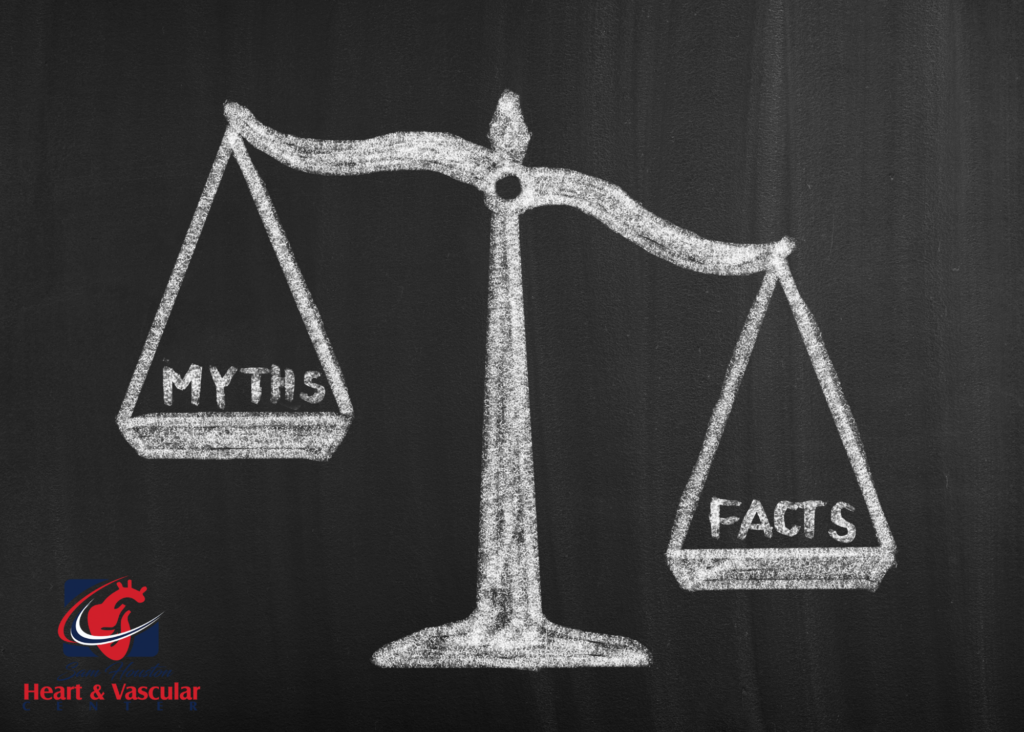
Heart Health Myths Debunked: Separating Fact from Fiction
When it comes to heart health, misinformation can be dangerous. From the foods you eat to exercise routines, false beliefs about cardiovascular wellness often steer people in the wrong direction, leading to preventable issues. Heart disease remains a leading cause of death worldwide—but maintaining a healthy heart starts with knowing the facts. Let’s set the record straight by debunking some of the most common myths about heart health.
Myth 1: Heart Disease Only Affects Older Men
One of the most widespread misconceptions is that heart disease is only a man’s problem or only impacts older adults. The truth? Heart disease is the leading cause of death for both men and women, and it doesn’t discriminate by age. While men are often diagnosed earlier, women tend to experience a higher mortality rate from heart disease later in life.
Fact: Women are equally at risk, and since 1984, studies have shown more women die annually from heart disease than men. Additionally, heart issues are increasingly affecting younger populations due to lifestyle factors, such as poor diet, lack of exercise, and rising obesity rates. Regular screenings and healthy habits are essential regardless of your gender or age.
Myth 2: You’re Too Young to Worry About Heart Disease
Think heart disease only happens to your grandparents? Think again. Cardiovascular issues often begin much earlier than symptoms appear. Factors such as high cholesterol or untreated high blood pressure in your 20s or 30s can quietly contribute to blocked arteries or chronic heart problems later in life.
Fact: Building healthy habits early, such as maintaining a balanced diet, exercising regularly, and avoiding smoking, dramatically reduces your risk. The American Heart Association emphasizes that heart disease prevention starts in childhood, with one in two adults over age 20 already showing signs of cardiovascular disease.
Myth 3: If You’re on Cholesterol-Lowering Medications, You Can Eat Whatever You Want
It’s tempting to think that medication like statins acts as a safety net for bad dietary choices. However, this misconception can lead to serious risks. While statins lower the liver’s cholesterol production, consuming foods high in unhealthy fats can offset their effectiveness and contribute to artery buildup.
Fact: Medications are only part of the solution. Pair them with heart-friendly eating habits, such as limiting saturated fats, processed foods, and sugary snacks. Include plenty of fruits, vegetables, and omega-3-rich foods like salmon for a comprehensive approach to heart care.
Myth 4: High Blood Pressure in Older Adults is Normal
A common falsehood is that rising blood pressure is part of aging and doesn’t require treatment. The reality couldn’t be further from the truth. High blood pressure in any age group strains your heart and arteries, leading to increased risk of heart attacks or strokes.
Fact: According to Harvard Health, maintaining a blood pressure below 140/90 is vital, even as you age. Routinely monitor your numbers and take necessary steps, whether through lifestyle changes or prescribed medications.
Myth 5: Heart Attacks Always Come with Chest Pain
When you imagine a heart attack, a person clutching their chest probably comes to mind. While chest discomfort can be a prominent symptom, it’s not always present, especially in women. Nausea, shortness of breath, jaw pain, or overwhelming fatigue may also indicate a heart attack.
Fact: Recognizing less obvious symptoms can save lives. Know the warning signs and act quickly. If you suspect you or someone else may be having a heart attack, call 911 immediately.
Myth 6: Taking Vitamins Can Prevent Heart Disease
While vitamins and supplements are popular for general health, they are not a cure-all for preventing heart disease. There’s little scientific evidence supporting the notion that taking high doses of vitamin E or beta-carotene effectively reduces heart risk.
Fact: Instead of relying on supplements, focus on a nutrient-dense diet. Whole foods like greens, lean proteins, and whole grains provide the vitamins your body needs to thrive.
Myth 7: Quitting Smoking Won’t Help If You’ve Smoked for Years
Longtime smokers may feel that the damage is already done. Why bother quitting now? This belief is incredibly damaging, as the health benefits of quitting smoking begin almost immediately, regardless of how long you’ve smoked.
Fact: Within one year of quitting, your risk of heart disease decreases by 50%, and after 10 years, your heart health mirrors that of nonsmokers.
Myth 8: You Should Avoid Exercise After a Heart Attack
After experiencing a heart attack, many assume physical activity is dangerous and should be avoided. However, research shows quite the opposite. Under careful supervision, regular physical activity helps strengthen your heart and improve long-term outcomes.
Fact: Participating in rehabilitative exercise programs is one of the best ways to recover and enhance your heart’s strength. Talk to your doctor about crafting a safe and effective fitness plan.
Moving From Myths to Facts
Dispelling these myths is the first step to taking charge of your heart health. Use this evidence-based information to make informed choices about your lifestyle, screening tests, and treatments.
Take Control of Your Heart Health
Partner with Sam Houston Heart and Vascular to safeguard your cardiovascular health. Our top cardiologists specialize in cutting-edge prevention, diagnosis, and treatment tailored to you.
Schedule an appointment today at www.samhoustonheart.com or call 832-241-2001. Together, we can work to ensure your heart health is powered by facts, not fiction.

